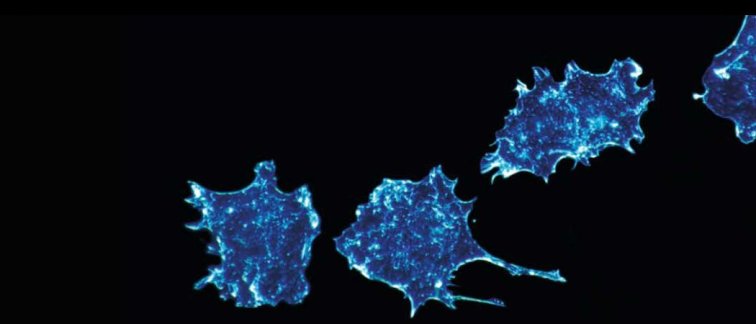Hereditary mutations in the Folliculin (FLCN) tumor suppressor gene cause Birt–Hogg–Dubé syndrome, a rare disorder predisposing carriers to kidney tumors. FLCN is an essential gene linked to diverse cellular processes but the mechanism by which FLCN prevents kidney cancer remains unknown. Iris Glykofridis and colleagues utilized CRISPR technology to compare normal renal cells with renal cells that lack FLCN. They discovered that FLCN is involved in two important biological processes controlling different gene expression programs associated with interferon-stimulated response elements, or metabolic activity and autophagy. These results provide more mechanistic insights into renal cancer development, and pinpoint potential biomarkers which may be of translational value for Birt-Hogg-Dubé patients.
For more information, see: Glykofridis, I.E. et al. (2021) eLife;10:e61630 DOI: 10.7554/eLife.61630

